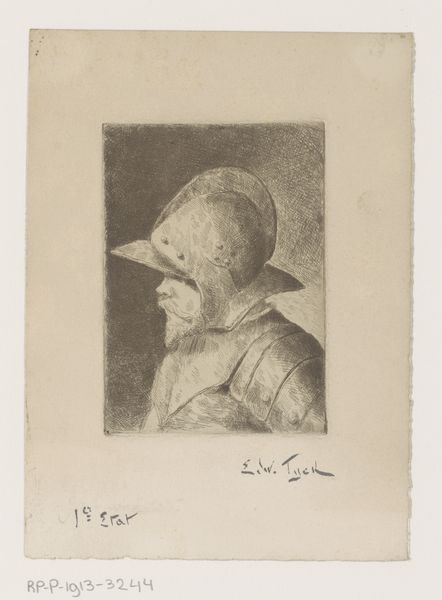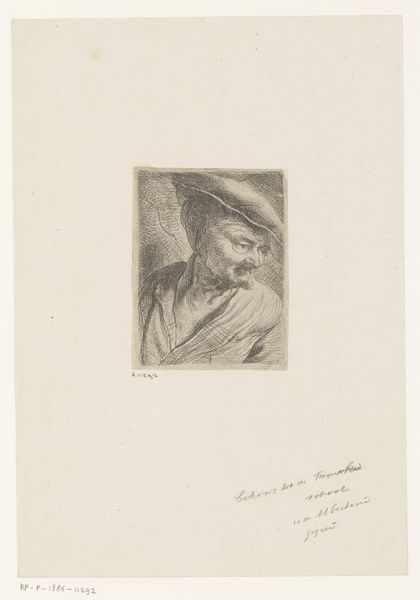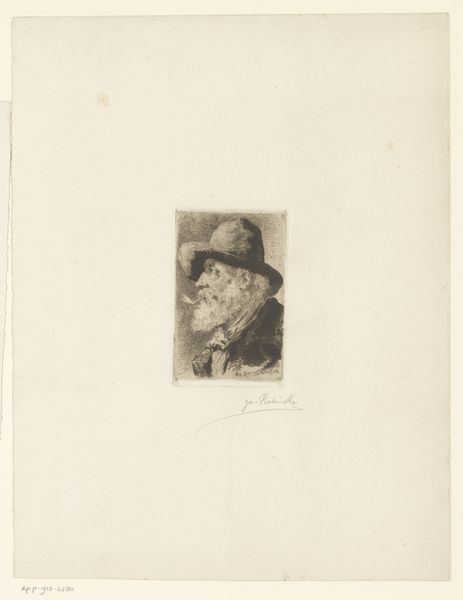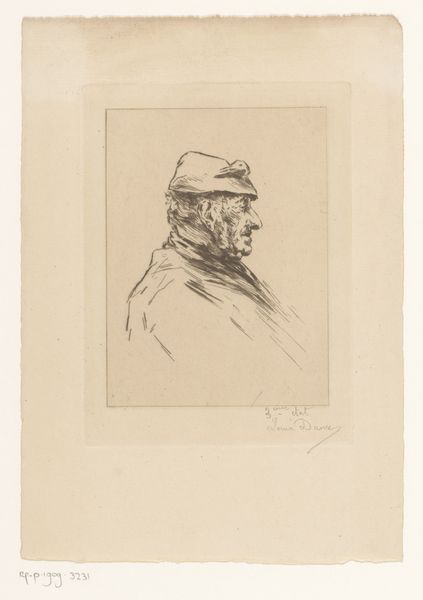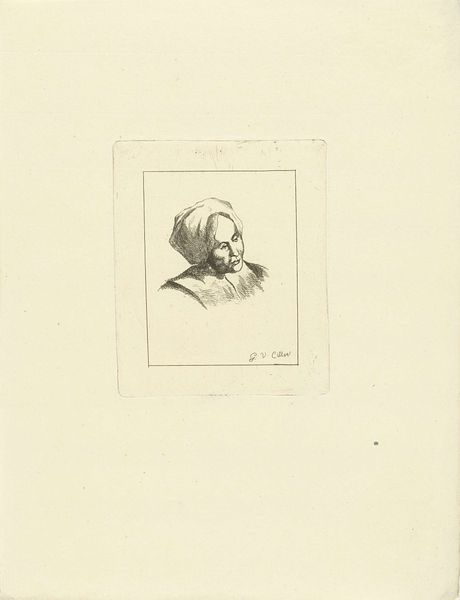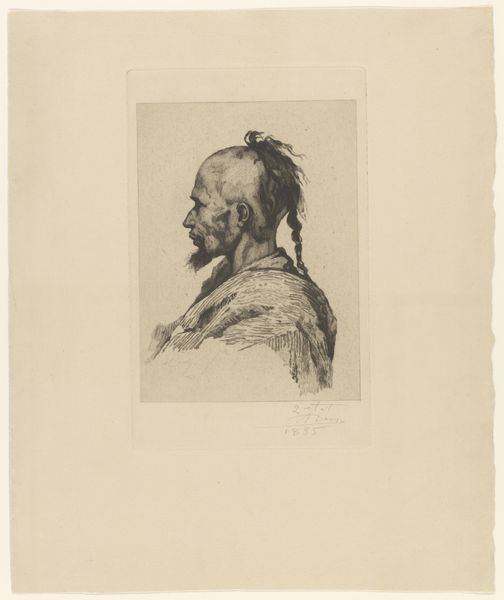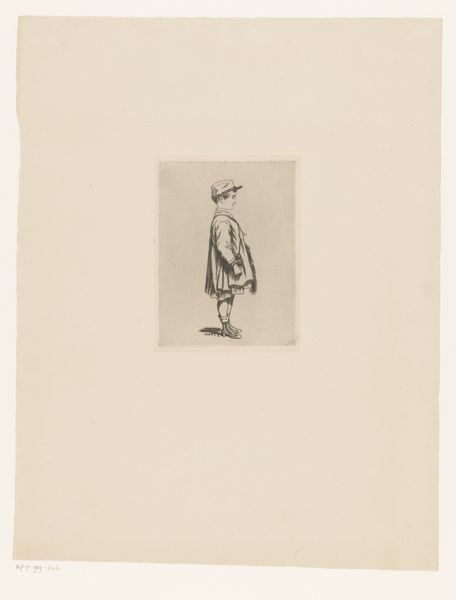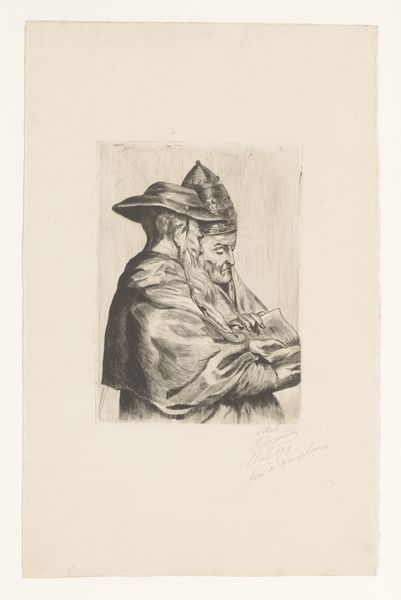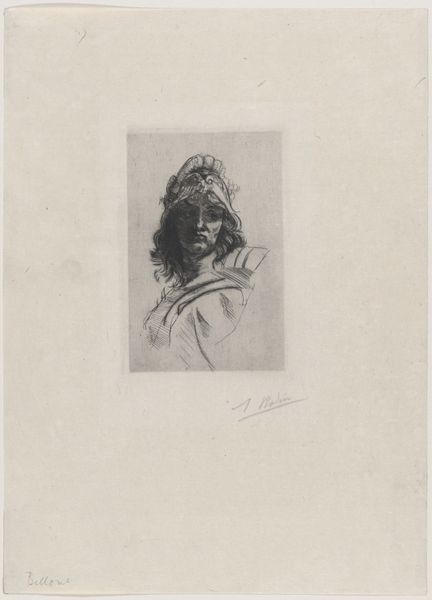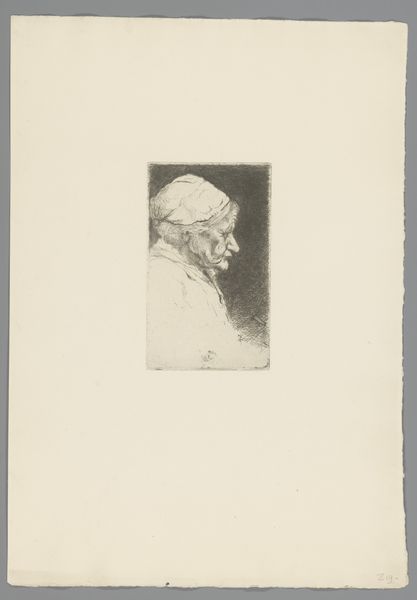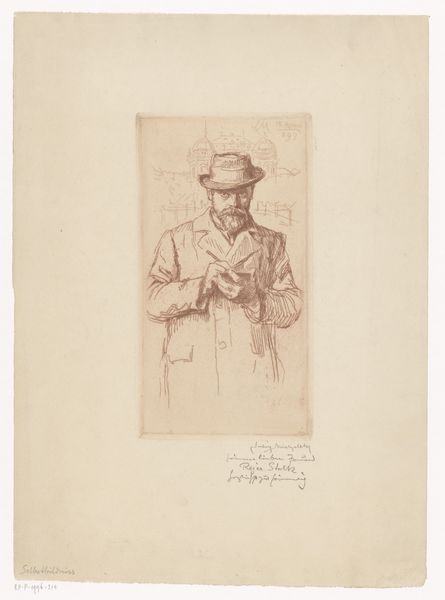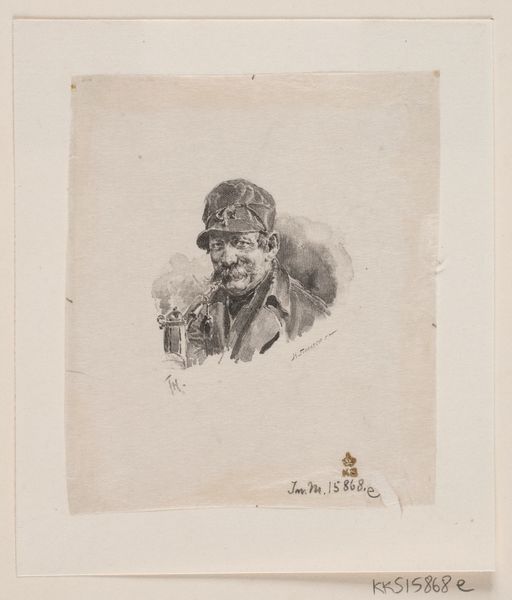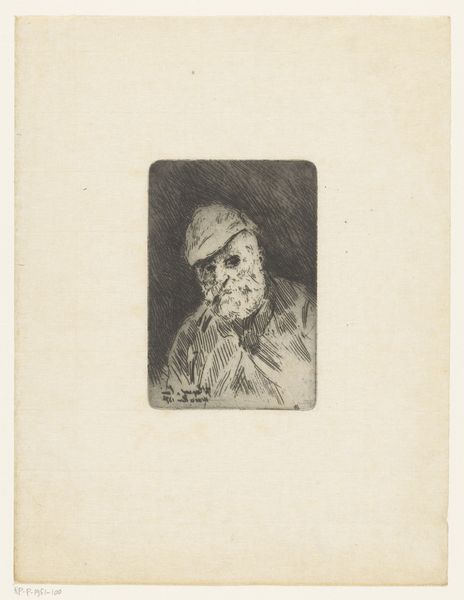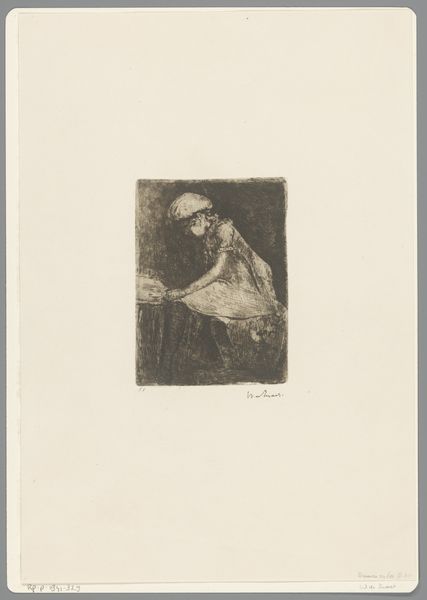
drawing, print, etching, pencil
#
portrait
#
pencil drawn
#
drawing
#
light pencil work
# print
#
etching
#
pencil sketch
#
personal sketchbook
#
pencil
#
sketchbook drawing
#
pencil work
#
sketchbook art
#
realism
Dimensions: height 112 mm, width 80 mm
Copyright: Rijks Museum: Open Domain
Curator: This is "Man in harnas," a print etching and pencil drawing by Edouard Tyck, created sometime between 1857 and 1913. Editor: The portrait possesses a stark, stoic quality. It’s somber, really; almost melancholic. The details are impressive given the limited medium—there's a palpable weight in the armor. Curator: Yes, let's consider what this armor represents. Across cultures, armor symbolizes not only physical protection but also a complex layering of societal roles and constraints. In this rendering, who is protected? Editor: It speaks of the enduring imagery of strength and power—but also hints at vulnerability. Armor conceals as much as it protects; maybe we see a symbolic division of public versus private persona here? Curator: Intriguing observation, given that the artwork falls within a period where the artist grapples with evolving notions of masculinity and national identity. The subject’s profile is deliberately stoic. The light, which subtly falls onto the helmet and chest piece, further reinforces ideals of service, discipline and allegiance, particularly when considered in the wake of major societal shifts during the artist’s time. Editor: I agree. The man’s hidden face creates an almost impenetrable aura, reflective of a complex interplay of fear and power. The visual language suggests a rigid hierarchy, potentially reflecting social inequalities that affected various identities across the Western landscape during Tyck's lifetime. Curator: Also consider the work’s execution, using print etching to replicate and distribute the image widely. This speaks directly to questions about accessibility, readership and how the ideals embodied within could be circulated for varied ideological purposes. Editor: Looking again, the artist's precision makes me question its realism, since in stark reality no one's image truly lives up to an artistic ideal. Yet this controlled image endures... it continues to resonate! Curator: This intersection of art, history and identity offers us crucial insight on its intended audience. Editor: Yes! "Man in harnas," though modest in medium, leaves a significant footprint on our shared cultural consciousness.
Comments
No comments
Be the first to comment and join the conversation on the ultimate creative platform.
